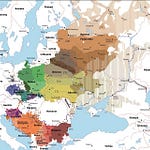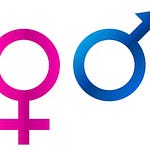
For the first time ever, parents going through IVF can use whole genome sequencing to screen their embryos for hundreds of conditions. Harness the power of genetics to keep your family safe, with Orchid. Check them out at orchidhealth.com.
On the third episode of the Intellectual Brown Web (IBW) Razib, Sarah Haider of A Special Place in Hell (and her own Substack), Shadi Hamid of The Washingon Post (plus Wisdom of the Crowds and his own Substack) and Murtaza Hussain of The Intercept (and his own Substack) discuss the effects of the Hamas atrocities and the now impending Israeli invasion of Gaza on both geopolitics and American culture. Haider and Khan address why they are finally discussing the Israeli-Palestine conflict, which both have long avoided. In contrast, Hamid and Hussain who have both long taken a scholarly and journalistic interest in the issue, now find themselves deeply engaged once more. Hamid in particular addresses what he sees as the eliminationist rhetoric coming out of some Israeli and American quarters in reaction to the terrorist actions, while Hussain argues that the coming divide will be between the West and the Global South. All four discuss whether 2023 will be similar to 2001, with a massive pivot in American culture and foreign policy forced by Islamist terrorism (conclusion: probably not, but there will be changes).
They also discuss the massive impact of the conflict in American culture already in just the last few days, in particular its relevance to cancel culture and the strident unapologetic anti-Israel reactions of radical Left activists. Hamid puts the spotlight on billionaire hedge fund manager Bill Ackman, who is attempting to assemble a list of Harvard students who are members of organizations that backed a pro-Palestinian letter so he can have the option of not hiring them. For the last half a decade Hamid has been a vocal opponent of cancel culture, and he objects to its resurgence in a new form, as well as the turning away from avowed principles by old allies against wokeness. Hussain and Haider respond that most people are truly not principled, and appeal to elevated universal ideals solely it is in their interest.
Khan, Haider, Hamid and Hussain finally discuss the relationship of American Jews with the American Left, and prospects for a coalitional crackup, as well as the future of the relationship between Jews and Muslims in the US. Khan brings up the divergence between academia and the rest of American society, with universities and many faculty members remaining silent in marked contrast to the official response to other recent high-profile political events, while Hollywood and corporations have strongly taken Israel’s side.
They finish the conversation by reasserting the need for open discussion, free speech and an understanding and acceptance of human dignity, no matter one’s ethnicity, religion and nationality. Though these principles are violated on all sides, Haider emphasizes that there still need to be principles, lest every discussion and debate collapse into a power game of all against all.
Related: A Special Place in Hell: Israel at War, Israel, Gaza, and the Double Standard on Cancel Culture, Who is Responsible for the War in Gaza? and Hamas is dragging Israel toward the abyss.



















